
Candidates take a mock IELTS test with native English speakers at an event organized by the British Council in Ho Chi Minh City.
PHOTO: NGOC LONG
According to the list of units approved by the Minister of Education and Training to cooperate in organizing foreign language proficiency exams in Vietnam, as of July 21, the Department of Quality Management (Ministry of Education and Training) has issued a total of 223 decisions approving joint exam organization in Vietnam in 7 languages. Of which, the number of decisions issued for English certificates is the highest with 154 decisions, followed by Chinese (20), German (19), Japanese (18)...
It should be noted that some decisions related to the cancellation of registered testing locations or changes in the name of foreign language certificates do not mention the approval of new testing locations. According to current regulations, to be allowed to organize tests and issue international foreign language certificates in Vietnam, the Vietnamese and foreign parties (collectively referred to as the associated parties) need to prepare documents according to the form and submit them to the Ministry of Education and Training for approval.
The testing market is bustling.
According to Thanh Nien statistics, IELTS is the most popular certificate with 47 decisions, accounting for 21% of the approval decisions of the Ministry of Education and Training. Of these, the British Council (UK) is approved to jointly organize exams with partners at 41 locations, 4 locations less than IELTS Australia Pty Limited owned by IDP Education Pty Ltd (Australia, often referred to as IDP).
Thus, there are at least 86 locations licensed to hold IELTS tests nationwide and these test locations are spread across many provinces and cities from North to South, but most are located in Hanoi and Ho Chi Minh City. The British Council is also collaborating with partners in Vietnam to organize tests and issue Aptis ESOL English certificates at 18 locations across the country.
However, if only considering the number of approved test scores from a single foreign party, Cambridge Assessment English (UK) is leading the latest statistical period with 84 locations. The tests organized jointly by this unit are PET (B1 Preliminary), KET, FCE, CAE and Linguaskill.
Some other international English certificates that have been licensed in Vietnam are LanguageCert of PeopleCert Qualifications (UK), OTE of OUP (UK), PTE, VEPT of Pearson (UK) and TOEIC, TOEFL of ETS (USA), reflecting a fiercely competitive but also potential English testing market in Vietnam, in the context of the Politburo's determination to make English the second language in schools.
Sharing the same excitement are the German and Japanese language testing markets.
For German, the certificates that have been licensed to organize exams are DSD of the German General Education Commission abroad, ECL of the Language Testing Center (University of Pécs, Hungary), ÖSD Zertifikat of the Association for the Assessment of German Proficiency (Austria), Zertifikat telc Deutsch and Zertifikat Start Deutsch managed by nearly a dozen parties such as IWU (Germany), Grone Hamburg (Germany), WBS Training AG (Germany)... and finally TestDaF of the Gast Institute (Germany).
Meanwhile, for Japanese, a total of 6 foreign parties cooperate with Vietnamese partners to organize the exam, including: Gobun Kenkyusya (Japan) with J.TEST certificate, Japan International Exchange Foundation and Prometric (Japan) with JFT, Educational Publishing Joint Stock Company (Japan) with NAT-TEST, Japan International Exchange Foundation with JLPT, Asia International Exchange Scholarship Fund with TOPJ and Association for Applied Japanese Language Education with STBJ.
Many foreign languages have only one foreign side.
In recent years, Chinese has also received special attention, leading to an increase in the demand for Chinese proficiency tests (HSK, HSK spoken) to obtain certificates. Most recently, nearly 10,000 candidates took the Chinese test at the Confucius Institute (Hanoi University) in the first quarter of this year - leading the world and accounting for 1/7 of the total number of tests in the past 10 years - also partly reflecting this demand.

Candidates exchange answers after taking the high school graduation exam in foreign languages in June.
PHOTO: NGOC LONG
According to the Ministry of Education and Training, the Chinese Language Testing International Education Technology Co., Ltd. (Beijing) under the China-Foreign Language Exchange Cooperation Center (CLEC) of the Chinese Ministry of Education is the only foreign party cooperating with Vietnamese partners to organize Chinese language exams in our country.
Up to now, a total of 14 locations have been licensed to organize, of which two locations are managed by Thai Nguyen University, the remaining units each have one location including Thanh Dong University (Hai Phong), Ha Long University (Quang Ninh), Hanoi University, University of Foreign Languages under the Vietnam National University, Hanoi, Phenikaa University (Hanoi), Hanoi University of Education, Hanoi University of Education 2 (Phu Tho), Hue University, Duy Tan University (Da Nang), Dong A University (Da Nang) and Ho Chi Minh City University of Education.
Similarly, the Test of Proficiency in Korean (TOPIK) is only organized by the National Institute for International Education (NIIED) under the Ministry of Education of Korea in cooperation with Vietnamese partners. The Working Committee for the Promotion of the Chinese Proficiency Test under the Taiwan Ministry of Education and the French Agency for International Education are also the exclusive foreign parties to jointly organize the Chinese (TOCFL) and French (DELF-DALF) tests in Vietnam.
A notable point is that the list announced by the Ministry of Education and Training lacks the TORFL Russian language certificate, the TCF French language certificate and the B1 Business Preliminary English language certificate, even though these are certificates that can be used to apply for exemption from the high school graduation exam in foreign languages according to current regulations of the Ministry of Education and Training.
Three years ago, the Ministry of Education and Training issued Circular No. 11/2022/TT-BGDDT regulating the joint organization of foreign language proficiency certification exams, causing all exams to be postponed for a period of several days to several months. In early September this year, the Ministry of Education and Training issued Circular No. 16/2025/TT-BGDDT to replace the above Circular 11, which includes a new point of delegating the authority to approve and license the organization of certification exams of the Ministry of Education and Training to provinces and cities.
The new circular officially takes effect from October 12.
Source: https://thanhnien.vn/nhieu-ben-nuoc-ngoai-doc-quyen-trong-thi-truong-khao-thi-ngoai-ngu-tai-viet-nam-185250925190525851.htm





![[Photo] Prime Minister Pham Minh Chinh attends the groundbreaking ceremony of two key projects in Hai Phong city](https://vphoto.vietnam.vn/thumb/1200x675/vietnam/resource/IMAGE/2025/9/27/6adba56d5d94403093a074ac6496ec9d)


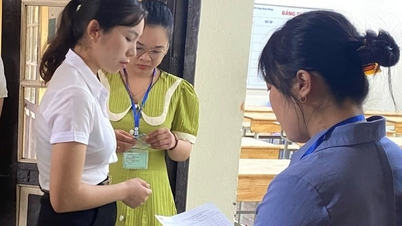



































































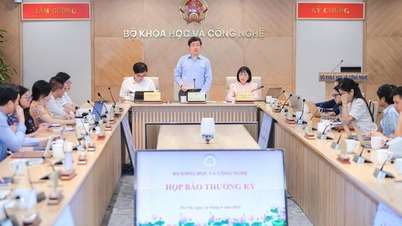






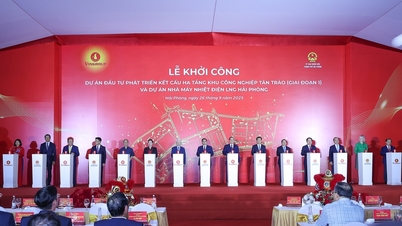






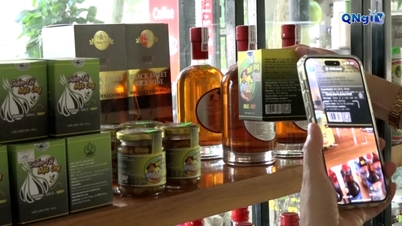

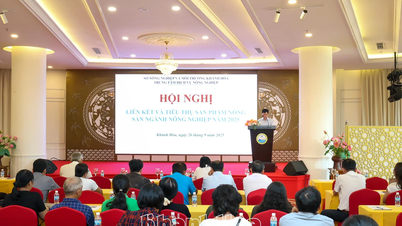










Comment (0)